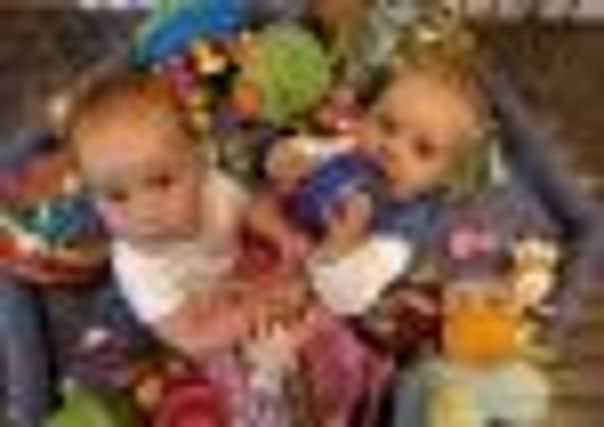Share and share alike could have roots in nursery, finds new study


The US study found that youngsters were able to differentiate between the equal and unequal distribution of food, which scientists said showed an early awareness of fairness.
Findings also suggested a link between how sensitive different babies were to fair behaviour and whether they would be willing to share their favourite toy with another child.
Advertisement
Hide AdAdvertisement
Hide AdJessica Sommerville, associate professor of psychology at the University of Washington, said: “Our findings show that these norms of fairness and altruism are more rapidly acquired than we thought.
“These results also show a connection between fairness and altruism in infants, such that babies who were more sensitive to the fair distribution of food were also more likely to share their preferred toy.”
The research, published in the journal PLoS ONE, involved showing two short videos to 15-month-old infants.
In the first, a bowl of biscuits was distributed between two people – first with an equal allocation of biscuits, and then with one person getting more than the other.
The second video showed a jug of milk being shared between two people in a similar way. Scientists measured how long each of the infants looked at how the food had been distributed, as babies pay more attention when they are surprised.
They discovered that infants spent more time looking at the allocation of food if one person got more than the other.
Dr Sommerville said: “The infants expected an equal and fair distribution of food and they were surprised to see one person given more crackers or milk than the other.”
Previous studies had shown that two-year-old children can help others, which is considered a sign of altruism, and that those who are between six and seven years old show a sense of fairness.
Advertisement
Hide AdAdvertisement
Hide AdInfants are likely to pick up on ideas of fairness and unfairness “by observing how people treat each other”, Dr Sommerville said.
In a second task, scientists recorded whether or not the children were willing to share a toy with a stranger.
Those who had been more surprised by the unequal distribution of food were found to be more likely to share a favourite toy than the infants who seemed more surprised when there was an equal distribution of food. Dr Sommerville said: “The results of the sharing experiment show that early in life there are individual differences in altruism.”
Those who were willing to share a favourite toy had been “really sensitive to the violation of fairness in the food task”, she added.
Psychologists at Stirling University have also been investigating the development of different behaviours in babies and toddlers.
Dr Elena Hoicka, from the university’s Baby and Toddler Lab, said the latest research was interesting and promising, but the findings might not apply to all 15-month-olds.
“This is a small group so there are kids sharing their non-preferred toys, kids not sharing at all and probably those that are fussy and not doing the task,” she said.
“It is that small group – who shared their preferred toys – who were also surprised by unequal sharing. So it is not that all 15-month-olds have this concept of fairness. It would be interesting to find out at what age do all kids generally understand that.”
Advertisement
Hide AdAdvertisement
Hide AdDr Hoicka said another possibility was that the babies were simply interested in the asymmetry of the items being shared.
“When someone shares unequally they might just think ‘that’s a strange pattern’”, she said.